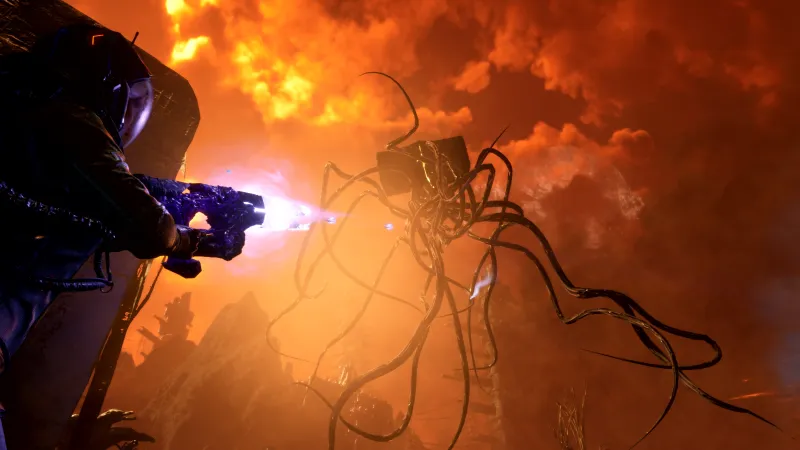
The rogue-lite and roguelike genres have been growing in popularity over the years They’re challenging games where players attempt runs with different abilities and random elements that generally force the player to restart from zero or near-zero for each attempt. They are born from the 1980 game Rogue which established many of the mechanics now considered staples of the genre.
But the difference between rogue-lite and -like has always been confusing, so we asked an expert from Evil Empire, the co-developer of Dead Cells, to explain it to us. Lucie Dewagnier is the game director of the upcoming The Rogue: Prince of Persia (a rogue-lite) and defines the subgenres like this.

Dead Cells (2018)
“Roguelike is – like the game Rogue – a game where you play, you die, you hit replay, but nothing is kept between your attempts. You will always replay the game from a blank slate.
Rogue-lite may add some things like permanent upgrades and enhancements that make your future runs – your future tries – easier and has progression systems that do not exist in roguelikes.”

Returnal (2021)
My hope, and I presented this plan to Dewagnier, is we drop the -lite and -like suffixes from the genre name and just refer to all games as existing within the Rogue genre. Dead Cells, Hades, Undermine, Returnal, etc. are no longer variations of rogue-lites and roguelikes – they’re all Rogue games.
“Yeah, even now there are games like Spelunky that are part of Rogulikes, but they have progression systems with new content you can get, so maybe it’s rogue-lite? Maybe it’s Roguelike? They’re Rogues.”
To read more about Evil Empire and Dewagnier’s next game, The Rogue: Prince of Persia (which is a rogue-lite, “With a ‘T’,” Dewagnier says), head here.